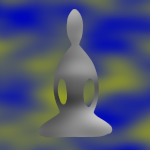Dear Friends,
There’s a Pāli word, dukkha, that Christina Feldman discusses in the context of compassion.
Dukkha has many different translations. Some of the original translators used the word “suffering”, but more recent translators use words like unsatisfactoriness, stress, dis-ease. (An article by Glenn Wallis lists several alternative translations:
https://www.lionsroar.com/what-is-dukkha/ )
Joseph Goldstein has described the origins of the word as being related to the hole in a wheel into which the axle fits. If the fit isn’t quite right, you have a bumpy ride. If you’ve ever ridden a bicycle with a wobbly wheel, you know the feeling!
Christina Feldman further expands on different dimensions of dukkha.
There’s the pain of pain – whether a stubbed toe or chronic illness or many variations – “to live in a body is an open doorway to all the pain that can afflict a body.” (page 59)
There’s a dissatisfaction that comes from the constant change in the world. It’s a sunny day that turns to rain to sun. You get the job, car, partner that you wanted, and then things change – the boss isn’t great, the car breaks down, the partner finds someone new, … “Change is woven into everything we see, feel, touch, and experience and into the lives of those we love and those we disdain. It is neither positive nor negative, good nor bad—it simply is.” (page 60)
The third dimension is one that Christina describes as “the world of reactivity, born of confusion, that sets us on a road of perpetual argument with the first two domains of dukkha.” (page 61)
Having studied engineering in university, I can relate to Joseph Goldstein’s explanation of this:
I call this kind of dukkha the Buddhist equivalent of the second law of thermodynamics, which says that all systems uninfluenced by outside forces tend to disorder. This means that in order to sustain life, we need to keep introducing energy into the system. And still, in the end, entropy always prevails.
Mindfulness: A Practical Guide to Awakening, page 295
Phillip Moffitt has also written about these dimensions of dukkha too:
The Mind that Suffers, https://www.lionsroar.com/the-mind-that-suffers/ )
So how do can we respond to this bumpy ride? With compassion.
Thich Nhat Hanh describes a simple practice that we can bring to any pain or unsatisfactoriness that we may encounter:
Now in our mind-consciousness there are two energies: the energy of mindfulness and the energy of suffering. The work of mindfulness is first to recognize and then to embrace the suffering with gentleness and compassion. You make use of your mindful breathing to do this. As you breathe in, you say silently, Hello, my pain. As you breathe out, you say, I am here for you. Our breathing contains within it the energy of our pain, so as we breathe with gentleness and compassion, we are also embracing our pain with gentleness and compassion.
Why We Shouldn’t Be Afraid of Suffering
https://tricycle.org/trikedaily/thich-nhat-hanh-suffering/
Gentle wishes,
Andrea

Such a comprehensive overview of dukha and our relationship to it. Excellent references in Lions’s Roar. Thank you!